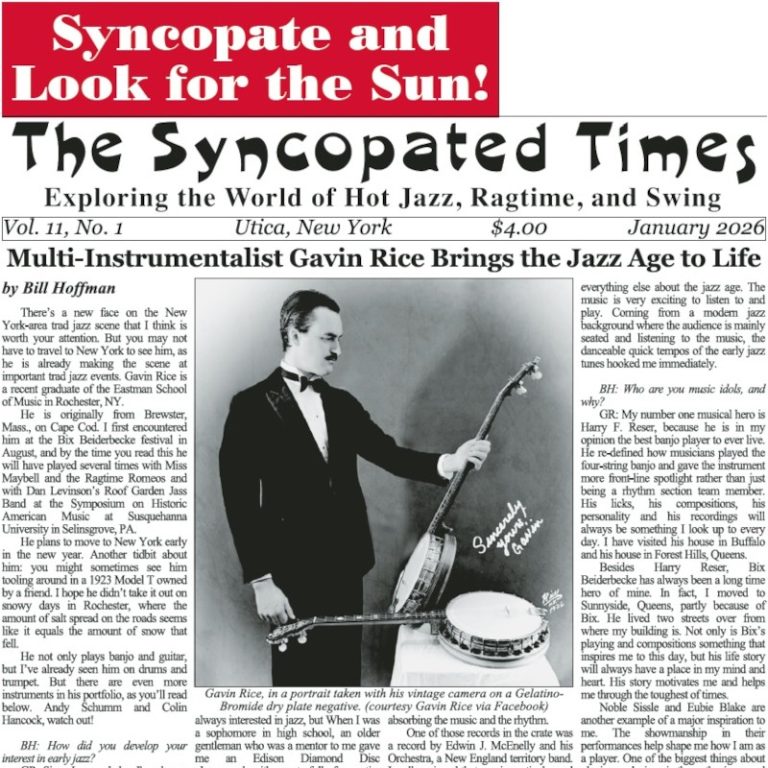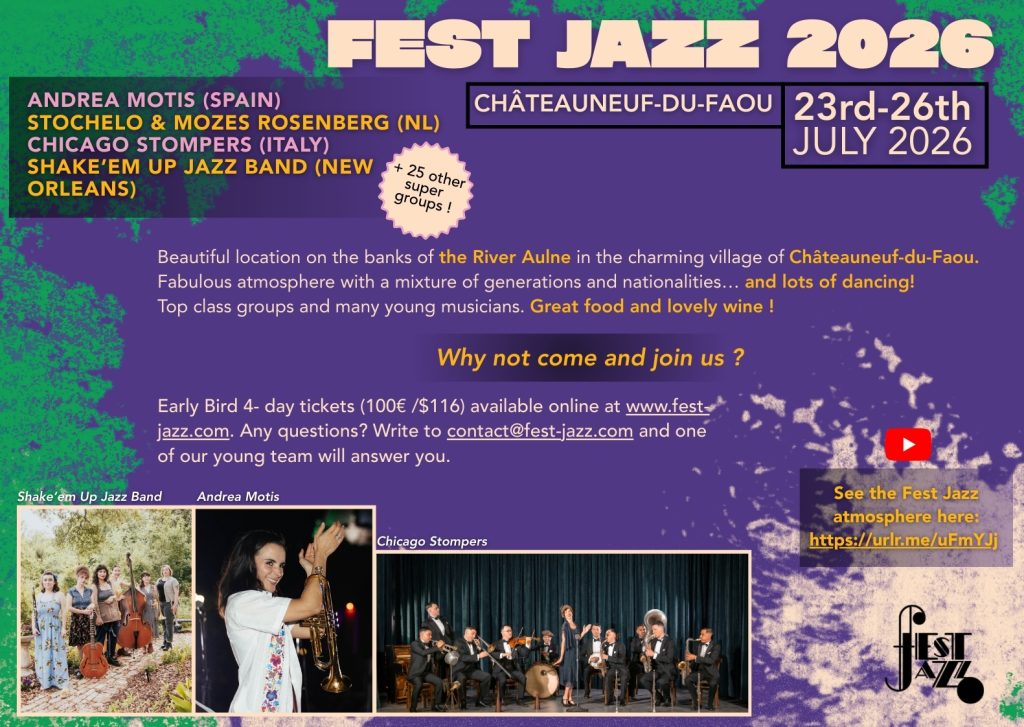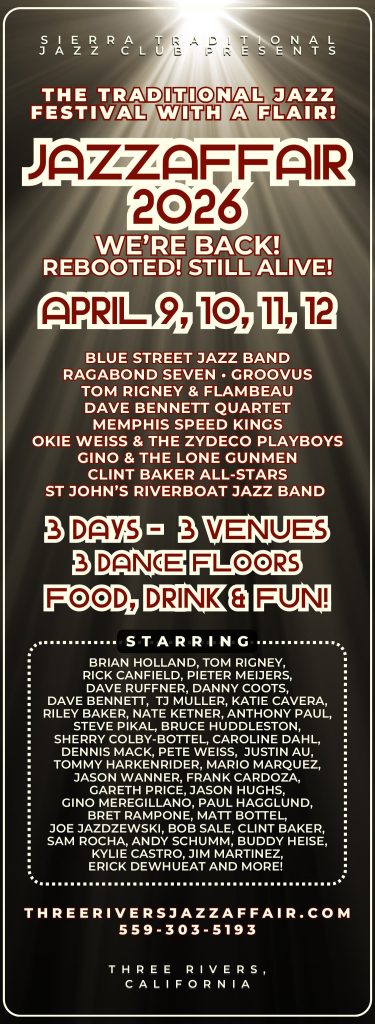The 51st Scott Joplin Ragtime Festival in Sedalia, MO took place, as usual, from Wednesday through Saturday, May 28-31. There were a couple events on Wednesday evening that I missed because my train was not due to arrive until 6:43 PM, and then was an hour late.
The format was as it has been for all the times I’ve been there (about six): free 30- and 60-minute sets at three venues running from 9 AM to 5 PM, symposia two mornings for which a nominal fee is charged, and paid 90-to-120-minute concerts each afternoon and evening; all occurring in the Liberty Center. Except for music at the Katy Depot, about half a mile away, everything is within a few minute walk. The main daytime music venue is a tent set up on 5th Street alongside the courthouse, with a pavilion three short blocks north at 2nd and Ohio. The Liberty Center is about 100 yards west of the tent.
A number of performers played at the festival for the first time this year: 23-year-old pianist Rowan Belt, bassist Sean Cronin, Paul Orsi, and drummer and washboardist Gareth Price. Sean appeared with the Lovestruck Balladeers and Gareth was with both of Dan Levinson’s bands—the Canary Cottage Orchestra and the Roof Garden Jass (yes, that’s the correct spelling) Band as well as the Ragabonds. Paul is a three-time winner of the Old Time Piano Playing Contest and is now retired from competition.
A few other non-pianists al
You've read three articles this month! That makes you one of a rare breed, the true jazz fan!
The Syncopated Times is a monthly publication covering traditional jazz, ragtime and swing. We have the best historic content anywhere, and are the only American publication covering artists and bands currently playing Hot Jazz, Vintage Swing, or Ragtime. Our writers are legends themselves, paid to bring you the best coverage possible. Advertising will never be enough to keep these stories coming, we need your SUBSCRIPTION. Get unlimited access for $30 a year or $50 for two.
Not ready to pay for jazz yet? Register a Free Account for two weeks of unlimited access without nags or pop ups.
Already Registered? Log In
If you shouldn't be seeing this because you already logged in try refreshing the page.




